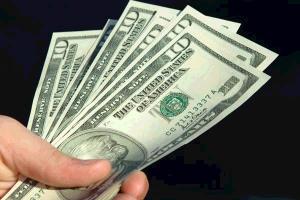With credit cards accepted almost everywhere these days, it s easy to just pay with plastic and never exchange bills and coins. Just swipe, sign, and go. You don t even have to think about it.
But that s the problem.
With the ease of swipe and go transactions, it s easy to spend a lot of money without giving it a second thought. Imagine: Four dollars for a latte, fifteen for lunch, seven for an after work martini, and what the heck, another seven for a martini since you re not driving. Add it up: thirty-three dollars just disappeared on just an average workday and your wallet isn t any lighter than it was this morning.
What if you d had to pay for each purchase with cash? And what if you knew that the cash in your wallet was your entire allowance for discretionary/fun/impulse purchases for the week?
Maybe you d spend two dollars and get a regular coffee with cream and sugar or (even better for your budget) bring coffee from home. Maybe you d pack your lunch more days during the week. Maybe you d skip the second martini or keep a sharper eye for happy hour deals.
Why does this work? Because you have to think about it. The act of taking cash out of your wallet and watching the number of bills in your wallet dwindle forces you to think about the value of each dollar. How do you feel when you pass that ten-dollar bill across the bar and put three dollars back in your wallet (or two if you re nice and tip the bartender)?
Plus, when the cash is gone, it s gone. If you re in line on Friday morning to get your latte and you only have three dollars in your wallet but the latte costs four, what do you do? It s a make or break moment for your budget. You can grab the two-dollar coffee, skip the coffee altogether, or pull out your credit/debit card and pay for the latte. But if you pick the credit/debit card option, you ll know as you sign your name that you just busted your budget for the week. Was the latte worth it?
It might not be easy to adhere to at first. But cash doesn t lie. It s in your wallet or it isn t. You can t overdraw from something that isn t there. Try it for a week: Go to the ATM, take out your allotted amount for fun purchases, and see how it goes. Do you feel differently about your spending?
Personal connection: You can do this in more categories than discretionary spending. You could live your whole life with cash. But I ve found a cash-only fun budget (eating at restaurants, going to the movies, impulsive latte buying etc.) to be easy to maintain because I can still use my debit card for groceries and large purchases (so I can still earn the reward points with my debit card program) and write a check for my rent, but I can t mindlessly pay for an ice cream cone I have to decide if I really want it and check to see if I have enough cash.

